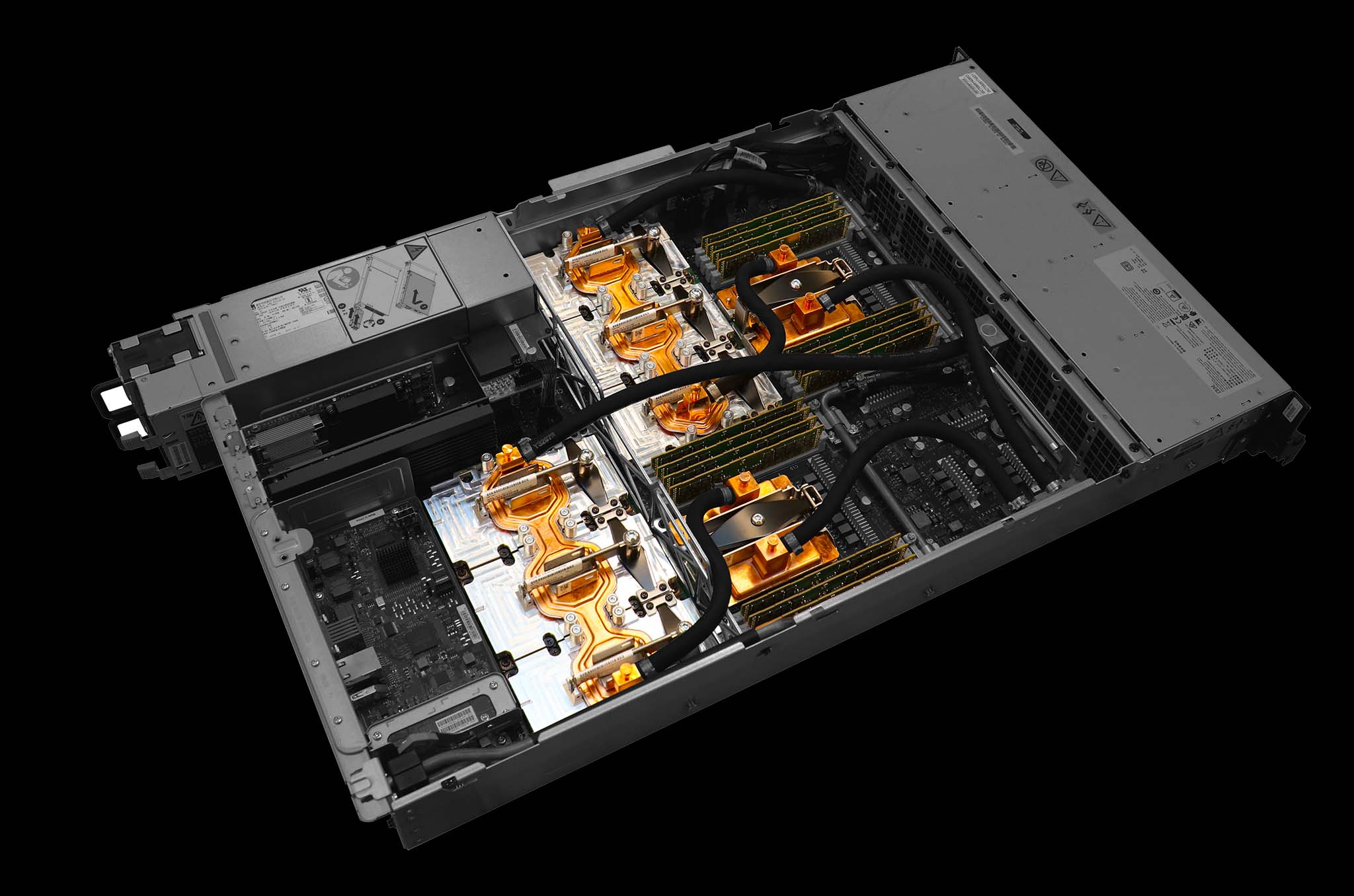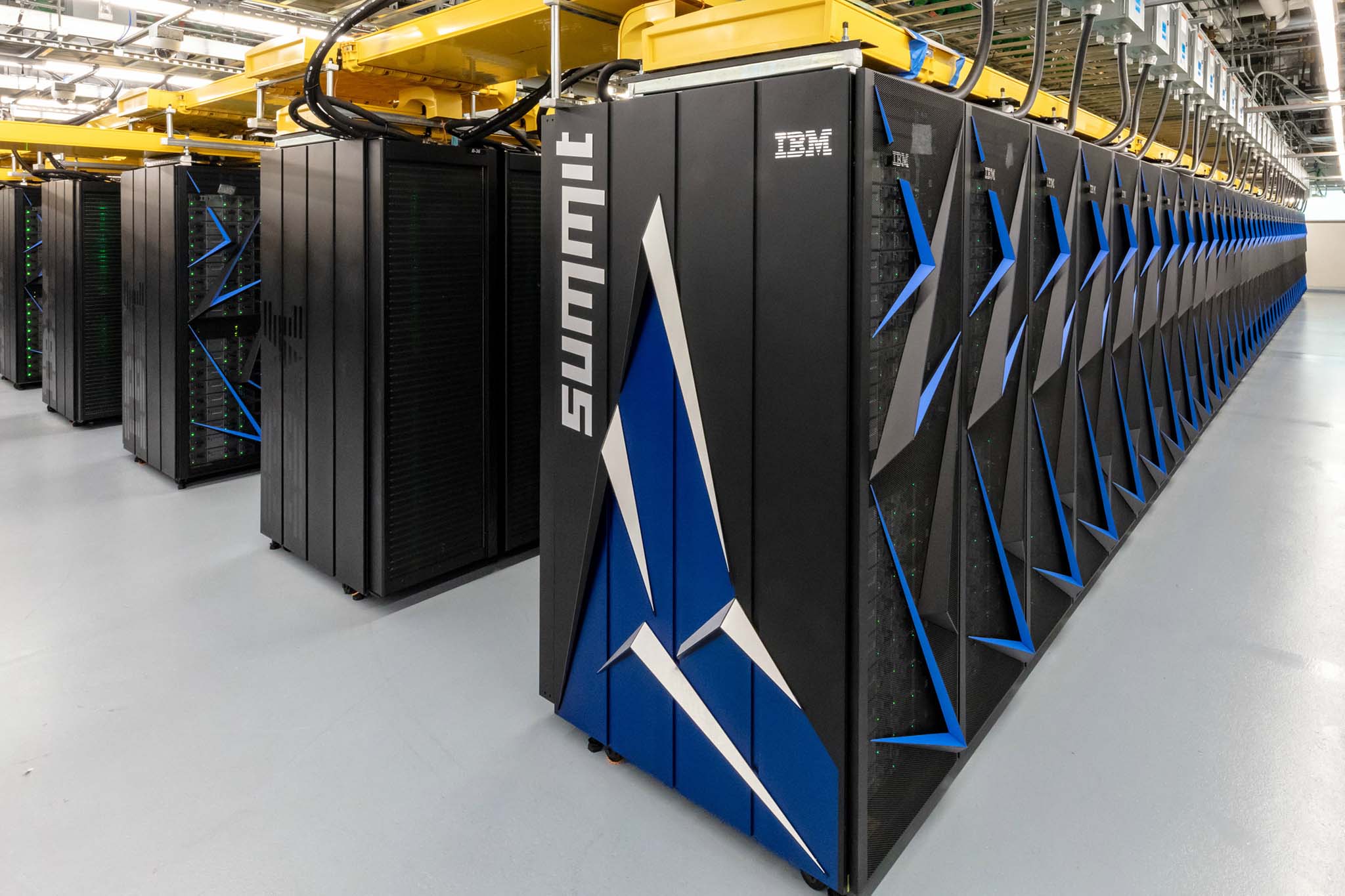The US deploys IBM Summit supercomputer to find a cure for COVID-19
- Tram Ho
IBM’s Summit supercomputer will be used by the US Department of Energy (DoE) to search for treatments or treatments for COVID-19 – acute pneumonia caused by the SARS-CoV-2 virus (corona). Summit is a 10 MW supercomputer built with 4608 processing nodes, each processing node contains a pair of Power9 3.07 GHz CPUs and 6 Nvidia Volta V100 GPUs. This is the fastest supercomputer on Earth with a computing power of 148.6 petaFLOPS with the Linpack test and reaches a maximum performance of over 200 petaFLOPS.

DoE wants to exploit Summit to find a way to inhibit or attack the virus. IBM, the owner and operator of Summit, said:
“When learning about new biological compounds, such as viruses, researchers in wet laboratories will cultivate microorganisms and observe how it responds to new compounds in the real environment. However, this process will take place more slowly without the help of computers with the ability to perform digital simulations to narrow the scope of potential variables. However, there are challenges:
Computer simulations can test how different variables respond to different viruses, but each of these individual variables can include millions or even billions of unique data and associated with the number of tissues. If this is done, then this process will be extremely time consuming if using normal computer hardware. ”
At this point, supercomputers like Summit will be able to develop their capabilities. Below is a video showing what scientists at the Oak Ridge National Laboratory (ORNL) have done to Summit: screening 8000 compounds in just a few days and identifying 77 small molecular compounds – here is evidence that corono virus can be inhibited.
Jeremy Smith – president at Tennesse University (UT), director of the UT / ORNL molecular biology research center, said: “Summit is a necessary tool for rapid simulation results. It only takes one to two days to get results while normal computers will take several months. The results we obtained do not mean we have found a cure or treatment for COVID-19. We are still hopeful that these findings will inform future research and create a framework that researchers can use to further investigate these compounds. ”

Preliminary studies show that the corona virus has many similarities with SARS, the way the infection of both viruses are similar, so researchers hope to soon find an inhibitory agent soon. Researcher Micholas Smith used Summit to learn how corona proteins bind to the spike protein (S-protein) to find ways to reduce its ability to successfully infect. From this initial study, a more accurate model of S-protein in corona virus has been published and the team continues to use Summit supercomputer to run the original analysis again with a more detailed model. . From here they can remove some compounds from the list or put other compounds on top.
The corona virus is spreading very rapidly and has spread globally with the number of cases as of March 11 was 118731 (an increase of 5146 compared to yesterday), the number of deaths 4262 (an increase of 250 compared to yesterday). . It is predicted that by March 22, the number of new cases will be 12822 cases / day and by April 2 will be 37441 cases / day.
The good news is that the number of critical cases is declining, according to data from Worldometers.info, the number of severe / critical cases is declining from 11553 on February 22 to 5771 on March 10.
COVID-19 is having a significant impact on the world economy, although it is unclear the number but surely Q1 financial reports of many companies will be gloomy. Since last month we have seen many large conferences canceled, airlines suffered major losses, many factories in China closed causing many industries to stagnate, Italy crisis, to blockade the country … The oil war between Russia and Saudi Arabia this week, is a prime example of how corona can spark a global economic recession.
Source : Techtalk
